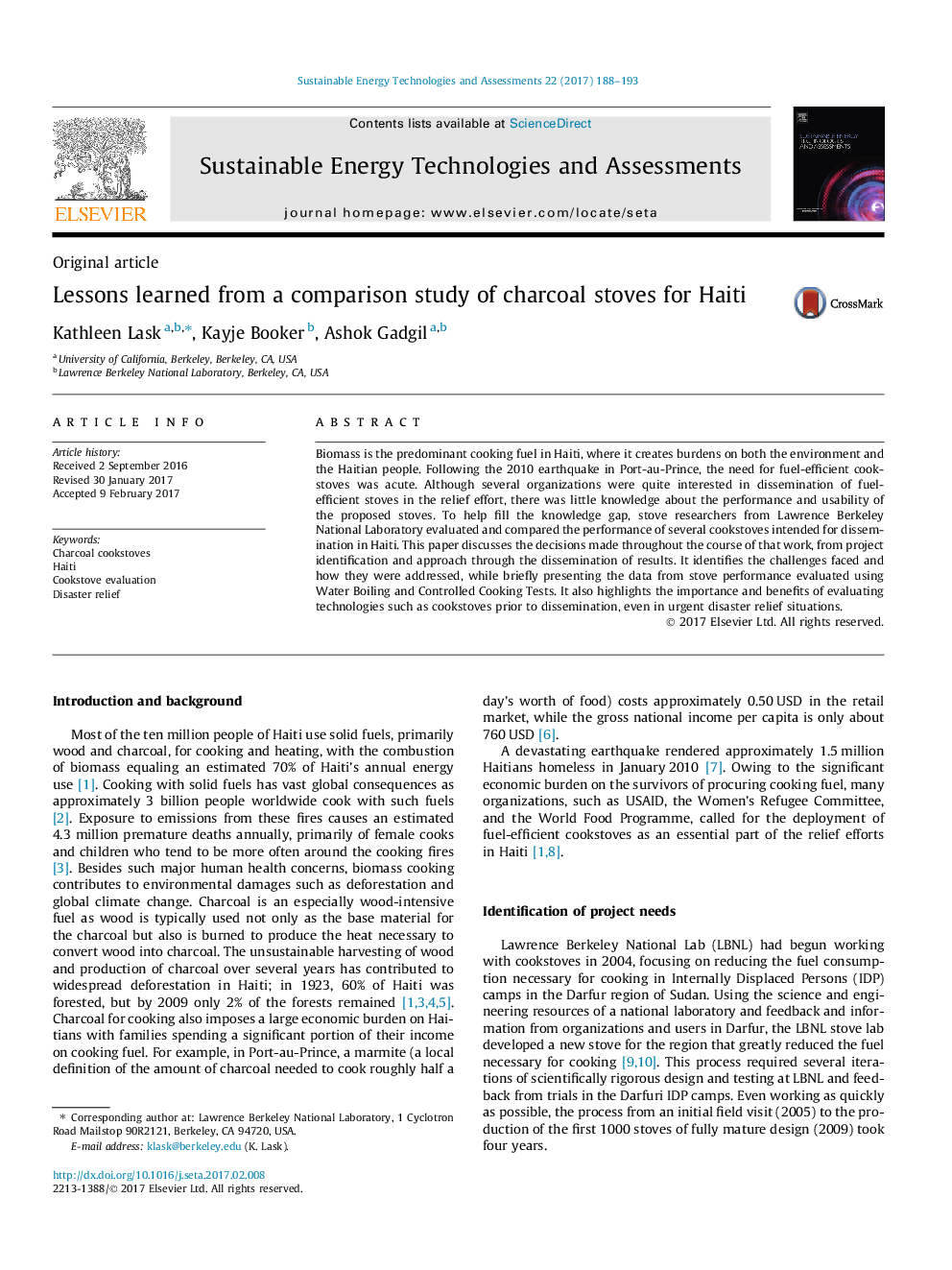| کد مقاله | کد نشریه | سال انتشار | مقاله انگلیسی | نسخه تمام متن |
|---|---|---|---|---|
| 5483479 | 1522388 | 2017 | 6 صفحه PDF | دانلود رایگان |
- This comparison study stresses the need for performance and usability evaluations.
- Technology evaluations are necessary even in time-constrained situations.
- Organizations must consider “soft aspects” when defining technical project goals.
- Obtain feedback from stakeholders to identify key technology parameters for tests.
Biomass is the predominant cooking fuel in Haiti, where it creates burdens on both the environment and the Haitian people. Following the 2010 earthquake in Port-au-Prince, the need for fuel-efficient cookstoves was acute. Although several organizations were quite interested in dissemination of fuel-efficient stoves in the relief effort, there was little knowledge about the performance and usability of the proposed stoves. To help fill the knowledge gap, stove researchers from Lawrence Berkeley National Laboratory evaluated and compared the performance of several cookstoves intended for dissemination in Haiti. This paper discusses the decisions made throughout the course of that work, from project identification and approach through the dissemination of results. It identifies the challenges faced and how they were addressed, while briefly presenting the data from stove performance evaluated using Water Boiling and Controlled Cooking Tests. It also highlights the importance and benefits of evaluating technologies such as cookstoves prior to dissemination, even in urgent disaster relief situations.
Journal: Sustainable Energy Technologies and Assessments - Volume 22, August 2017, Pages 188-193
